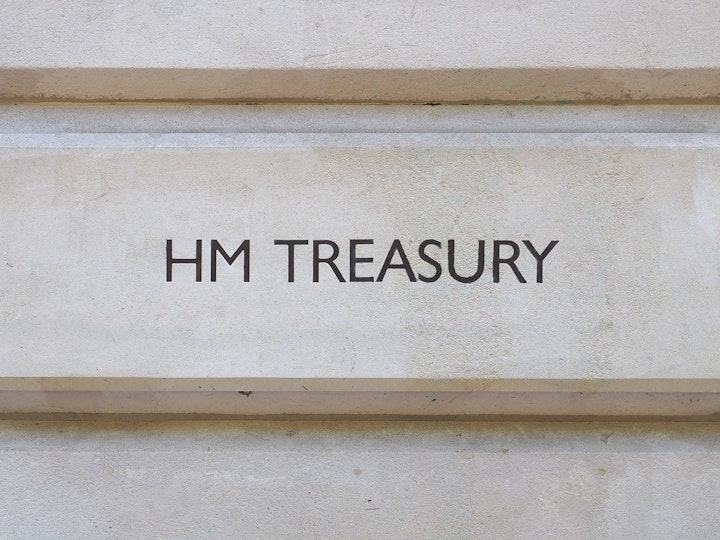What can taxpayers expect from the Chancellor's Spring Budget 2021?
Ahead of the UK Chancellor's Spring Budget 2021 announcement later this week, Clare Bentata considers the possible implications for business and personal taxes.

Some years the Budget passes with little interest beyond the headline rates of income tax and the effect on fuel prices. As with everything else, this year is different.
Notwithstanding the COVID-19 situation, this will also be the first post-Brexit budget. The main focus will no doubt be an attempt to stimulate the post-COVID economy as well as trying to recoup some of the estimated £400 billion spent on the crisis. Perhaps this year, the whole nation will be tuning in to what the Chancellor has to say.
So, what can we expect from this year’s budget?
There will be a desire to raise taxes, however this will have to be done in such a way that it does not damage the economic recovery. It is also worth remembering that the government made a manifesto commitment not to increase the main rates of income tax, national insurance, or VAT – the so-called triple tax lock. This means that any increase in the headline rates of income tax (the government’s largest source of tax revenue) can almost certainly be ruled out as it would breach the manifesto commitment and have an immediate impact on consumer spending.
Business taxes
Prior to the pandemic, the corporation tax rate (currently 19%) had been due to be cut to 17% from April 2021 onward. There are now rumours that the rate may in fact go up, with companies expected to help pay towards the extension of the furlough scheme and other support. This may appear to hurt struggling companies, but it is worth remembering that companies which are making losses do not pay any corporation tax and that some very large companies have posted increased profits as a direct result of the pandemic.
In order to encourage spending on capital equipment, we could see a further extension of the temporary ‘extra’ capital allowances currently in place. Currently businesses can get a tax write-off of up to £1 million on expenditure on plant and machinery. This had been due to drop to £200,000 but this has already been delayed until January 2022. It is possible that this will be delayed further; or possibly increased. We may even see new capital allowances brought in and if so, these would probably tie in with the government’s green agenda, particularly on carbon reduction.
For struggling businesses, particularly in the retail and hospitality sector, concerns are likely to centre around business rates, staff costs and finding sources of finance. After watching the demise of the high street and the rise of the online retailer, many eyes will be on what happens to business rates. There is already a review in place of the possible replacement of business rates with some form of sales tax. In the long term it seems likely that there will be a total overhaul of this system, however, the budget may just deliver an extended rates holiday. This may even be coupled with an increase to the digital services tax.
The government will be keen to encourage businesses to take on staff, particularly the 18-24 year-olds who have been most affected by job losses during the pandemic. The levels of employers’ national insurance are already low for this age group, but further cuts cannot be ruled out.
Many small businesses will have been forced to borrow their way through the pandemic and may struggle to raise further capital via loans. As a result, they may be seeking equity investment and perhaps hoping to tap into the savings that many taxpayers accumulated during the lockdown. It is therefore possible that the Chancellor may raise the maximum investments allowed under tax efficient investment schemes such as the Venture Capital Trust or Enterprise Investment Schemes.
Personal taxes
For the reasons outlined above we are unlikely to see any significant changes to income tax rates in England (it is worth noting that Scotland and Wales set their own rates to varying degrees). There were rumours early this year of a wealth tax of some sort, but the Chancellor has made a statement ruling this out.
The wealthy may be targeted in other ways. An increase in the rates of capital gains tax is probably on the cards. The current rates of capital gains tax (10% and 20%) may be re-aligned with the rates of income tax (20%, 40% and 45%) as some will remember they once were. This is unlikely to bring in a significant amount of tax revenue as very few people pay capital gains tax. However, those that do tend to be wealthy and it therefore has little impact on the average taxpayer. If the Chancellor pre-announces such an increase then the inevitable race to sell assets before the increase will see a welcome, albeit temporary, boost to the Exchequer's cash-flow.
Despite the triple tax lock preventing an increase to the main rate of national insurance (12% for employees), it does not prevent them from increasing the additional rate (of 2%) paid by those earning over £50,000 or indeed creating another higher band altogether. It is also worth noting that the self-employed currently pay national insurance at 9% and 2% respectively. The argument for this has always been that the self-employed enjoy fewer statutory benefits such as sick pay or holiday pay. However, when the Chancellor announced the financial support for the self-employed during the pandemic, he hinted that this may change in the future.
The average taxpayer may not notice the effects of this week’s budget, but high earners may have reason to fear a knock on the door (or their pension) from the tax man.
Whatever happens, Rishi Sunak may find that there are more people than usual turning on their TV at lunchtime whilst working from home to see what he has in his little red box.
You might also like
Never stop learning: Why Level 7 apprenticeships are vital in an era of transformative digital change
When will UK petrol prices go down, and why are they so high?
How does inflation impact businesses?
This site uses cookies to improve your user experience. By using this site you agree to these cookies being set. You can read more about what cookies we use here. If you do not wish to accept cookies from this site please either disable cookies or refrain from using the site.
